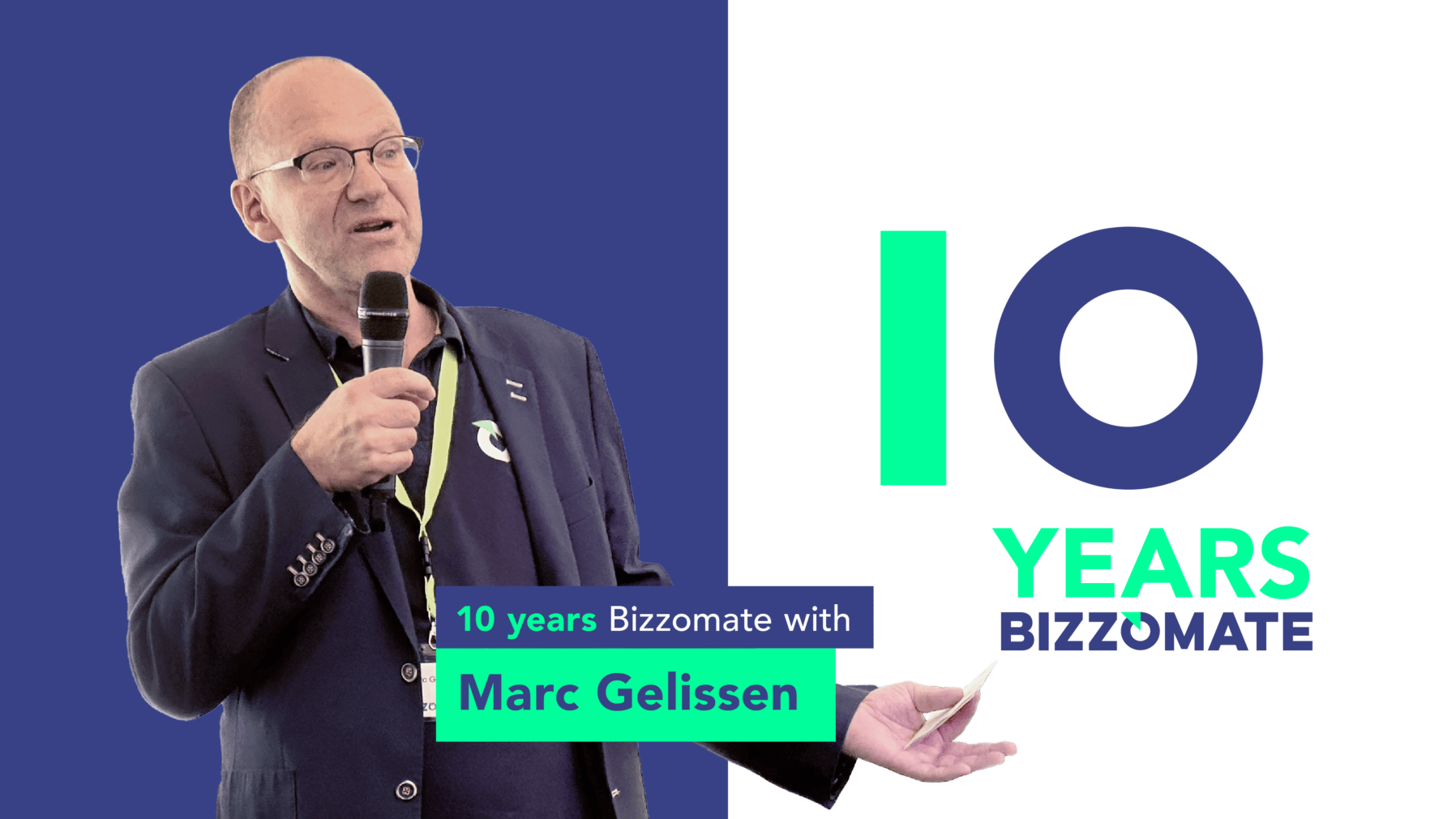Marc Gelissen: “We aim to be the most enjoyable and best company to work with and for, now and in 10 years.”
24 January 2024 • Blog

Where will we be in ten years with Bizzomate? What customers do we have? Are we still using low-code? And are we still working without managers? Although no one can predict the future exactly, in the third and final part of the blog series 10 Years of Bizzomate, Marc looks ahead to the next decade….
Marc: “When I look ahead to the growth in new customers we want to achieve in the next ten years, we don’t focus on a specific industry. We don’t look at the problems of a sector. We much prefer to take a more horizontal approach. Our main concern is the impact we can make with a client: how can we help them survive in an increasingly digital world?”
“In practice, we often see that our services fit well with SMEs up to about 2,500 people. In many cases, these organizations have outdated systems or systems that have been over-developed, making them difficult to upgrade. As a result, management is often at a loss when it comes to innovation. It is precisely for these types of companies that we can apply our business brains and take our role as trusted advisors. These companies can place their digital transformation entirely in our hands, from strategy to implementation. That way we can make a real impact. So in 10 years, I hope we will have as many of these types of clients as possible.”
“Whether market conditions in the next decade will be as favorable as they have been in recent years remains to be seen. It is clear that the trees no longer grow to the sky. We also see that large international parties are currently putting on the brakes a bit more. Still, to be honest, I’m not too worried about it. We have a very solid foundation. Companies that don’t have that may not make it, but how bad is that really? A crisis often puts everyone back on edge for a while and there is nothing wrong with that at all.”
“When we started Bizzomate in 2012, the economic climate was not very favorable. The economy was in the aftermath of the banking crisis (2008-2011). That meant we had to sail sharply into this startup phase. That forced us to set up our processes well and not spend unnecessary money. As a result, we have now established a solid, fully independent company and that is going to help us in any difficult period.”
Bizzomate toolkit
“When I look at our toolkit for the next decade, I expect low-code to definitely remain part of it. Low-code solutions, despite what is sometimes said, require quite a lot of expertise. You really have to understand what you’re building. Our colleagues will certainly be used for that in the coming years. I do expect more and more Artificial Intelligence (AI) components to be added to low-code solutions. I see no-code solutions primarily as something for the true citizen developers, but not as something we will engage in en masse in the future.”
“I hope we can start adding even more smart intelligence to Avola. I am thinking in particular of AI components that will eventually make decision mining possible. With decision mining, we can then analyze, for example, which rules are really being used in decisions and which are not, allowing us in some cases to make decisions much simpler and even have them generated automatically.”
Growing together
“What I am 100 percent sure of is that we will continue to maintain our special corporate culture. That means that ‘growing together’ with employees, customers and society, will remain the basis of everything we do for the next ten years. It is crucial that these three pillars remain in balance. If one of these three pillars weakens, you have a problem. That’s why we have to keep looking at them critically all the time. Something we are already doing, but as far as we are concerned it is indispensable for a futureproof organization. ‘Growing together with society’ in particular really sets us apart from other companies. Young people are much more looking for ‘purpose’ than earlier generations. By being able to offer them that, we know how to bind young people to us and I’m very proud of that.”
No hierarchy but autonomy
“An organizational structure without hierarchy also remains an important part of our corporate culture in the next decade. Because we now work in a completely flat organizational structure with expert teams, we can offer colleagues ‘the best of both worlds.’ By this I mean the larger clients and development opportunities you get at a larger company, but with the personal attention and sociability that comes with a small company. The young generation doesn’t want to work for a ‘boss’ who tells you exactly what to do, like in the old days. Instead, they need autonomy to thrive. I am convinced that if you don’t adapt your organization to this, no one will want to work for you in five to ten years. We are already doing this and I see our people benefiting from it.”




